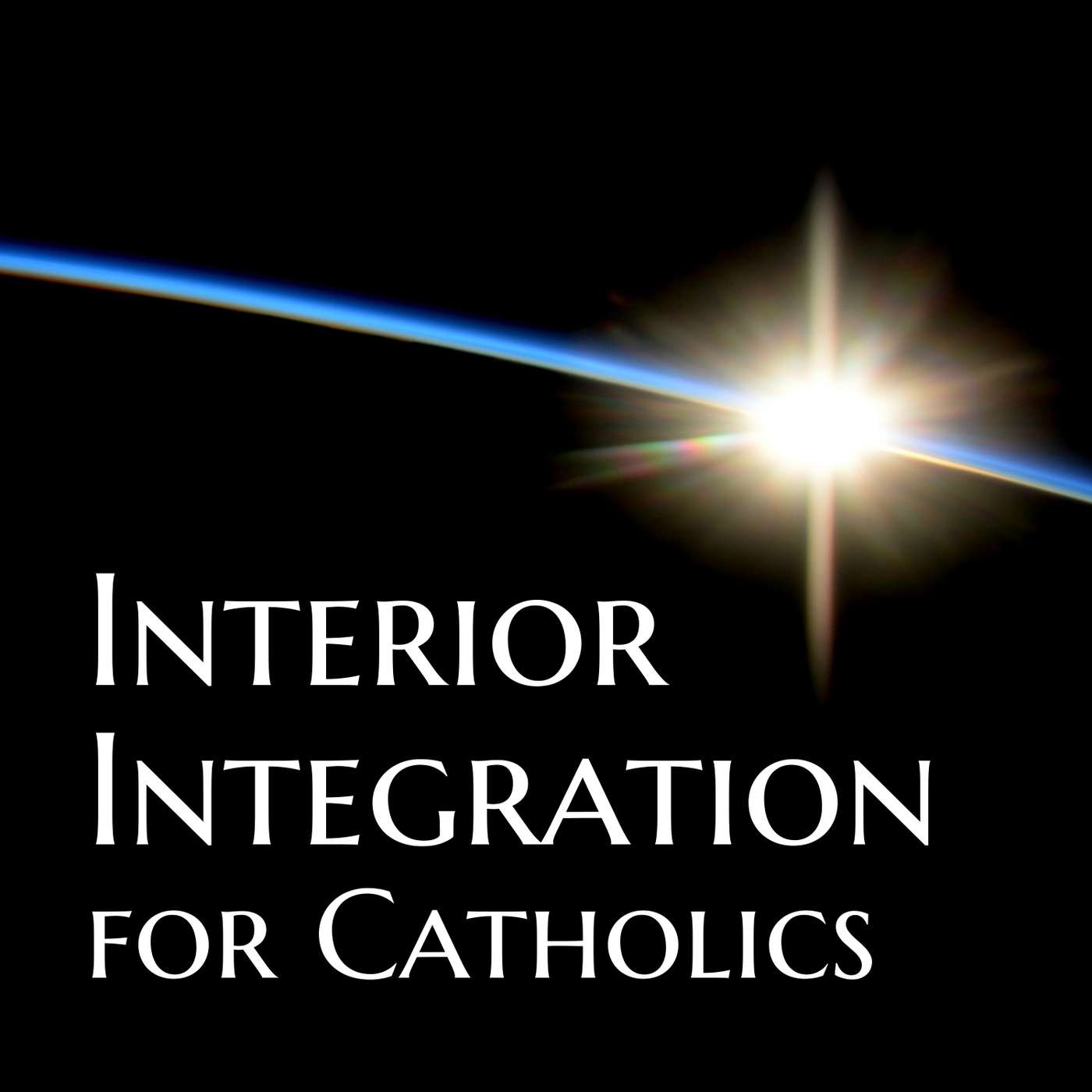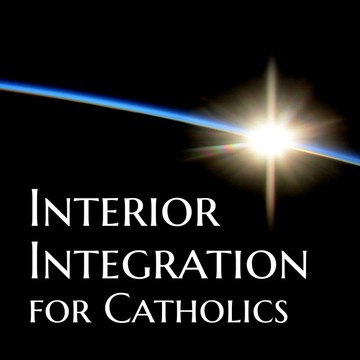

Interior Integration for Catholics
Peter T. Malinoski, Ph.D.
The mission of this podcast is the formation of your heart in love and for love, Together, we shore up the natural, human foundation for your spiritual formation as a Catholic. St. Thomas Aquinas asserts that without this inner unity, without this interior integration, without ordered self-love, you cannot enter loving union with God, your Blessed Mother, or your neighbor. Informed by Internal Family Systems approaches and grounded firmly in a Catholic understanding of the human person, this podcast brings you the best information, the illuminating stories, and the experiential exercises you need to become more whole in the natural realm. This restored human formation then frees you to better live out the three loves in the two Great Commandments – loving God, your neighbor, and yourself. Check out the Resilient Catholics Community which grew up around this podcast at https://www.soulsandhearts.com/rcc.
Episodes
Mentioned books

13 snips
Aug 7, 2023 • 1h 20min
118 Narcissism: Who, What, Why, and How? The Secular Experts Share their Views
In this episode, we examine different definitions of narcissism, we look at the markers and diagnostic criteria for narcissism, we examine the main beliefs, emotions, assumptions, and internal experiences that fuel narcissistic defenses (especially idealization and devaluation), we focus on relational patterns that narcissists have, and we look at how narcissists subjectively experience themselves. I show how narcissistic defenses represent maladaptive ways of trying to get deep needs met, especially integrity needs. We explore different kinds of narcissism, especially the different between overt and covert narcissism. We then go into how to identify narcissistic behaviors and appropriate ways of responding, according to the secular experts. Also, I issue you an invitation to a special opportunity. Tonight, Monday, August 7, 2023, from 8:30 PM to 10:00 PM Eastern Time -- I will have Catholic Psychologist Peter Martin as a special guest and we will be discussing narcissism -- in this free Zoom meeting, for the first 30 minutes or so, Dr. Martin and I will have a conversation about narcissism, and then for the next hour, we open it up for questions. Register by going to our Interior Integration for Catholics Landing page at soulsandhearts.com/iic. At the top, there's a link to register for the Zoom meeting. You can send me questions to crisis@soulsandhearts.com -- or leave me a VM at 317.567.9594 and I will play that voicemail on the air and Dr. Martin and I will answer you questions.

4 snips
Jul 17, 2023 • 1h 18min
117 Discover the Parts Who Make Up Your "Personality"
Dr. Gerry Crete, Marion Moreland and Dr. Peter Malinoski discuss the relationship among parts and how your manager parts make up what is perceived to be your personality. Dr. Peter offers a 25-minute experiential exercise to help you connect with your manager parts, the ones who make up your "personality." Then we debrief, describe our experiences of the exercise and answer questions from our live audience.

Jul 3, 2023 • 1h 20min
116 Why a Single Personality is not Enough
In this episode, Dr. Peter discusses five reasons why the conventional understanding of a single, homogeneous personality is insufficient to more fully understand your internal experience and how alternative conceptualizations of the human psyche that recognize internal multiplicity, parts, and systems are not only more helpful, but also harmonize with our Catholic Faith.

13 snips
Jun 19, 2023 • 1h 18min
115 Unburdening in Internal Family Systems -- A Catholic Discussion
Join Catholic IFS therapists Marion Moreland, Jody Garneau, and Dr. Peter Malinoski for an in-depth discussion of unburdening, informed by Internal Family Systems and grounded in a Catholic understanding of the human person. We explore three kinds of burdens -- personal burdens, legacy burdens, and unattached burdens (the IFS equivalent of demons), we provide examples from our own lives, we emphasize the importance of felt safety and protection for all parts, and we discuss the role of attachment theory in unburdening. In our Q&A with our live audience, we discuss how to approach "hiding parts" as well.

5 snips
Jun 5, 2023 • 2h 22min
114 Lifting Sexual Burdens: An IFS demonstration with Drew Boa
Have you ever wondered what inner work with Internal Family Systems looks like with troubling sexual issues? Join us as podcaster and coach Drew Boa reviews an unburdening of three of his parts from a sexual issue with Dr. Peter and other Christian therapists.

May 15, 2023 • 1h 13min
113 A Demonstration of IFS and Your Questions about Anger
Join RCC Lead Navigator Marion Moreland and Dr. Peter for a demonstration of Internal Family Systems work around anger, followed by a Q&A where we discuss with our live audience member the topics of exiled anger, forgiveness, and legacy burdens.

May 1, 2023 • 1h 15min
112 Assuaging Raging Hearts and Parts: Managing Anger with IFS
In this episode, Dr. Peter takes close look at an alternative way to manage, work through, and let go of anger, informed by Internal Family Systems (IFS), and especially by the work of Jay Earley. After a brief review of the major tenets of IFS, we discuss how to work through the different ways that manager parts, firefighter parts and exiled parts hold and manage anger. We look at the functions of anger in the internal system and especially at the process, the steps of working through and resolving anger held by parts in different roles. Then Dr. Peter discusses how parts of him hold and respond to anger in a particular subsystem of parts within his broader internal system.

Apr 17, 2023 • 1h 10min
111 Approaching my Anger from the Other Side: Experiential Exercise
In this live experiential exercise, Dr. Peter leads listeners through an experiential exercise that explores why anger might feel important, necessary, even indispensable for parts. We look at how anger can develop from parts feeling forced to choose between attachment needs and integrity needs being met. Dr. Peter and the audience members shared a lively, personal debriefing and discussion of their experience of the exercise.

Apr 5, 2023 • 33min
110 Being with Jesus in the Garden of Gethsemane – Experiential Exercise
(Please note that sound effects are used in this episode and may be triggering to parts.)In this experiential exercise I invite you and your parts to approach Jesus in the psychological, emotional, relational, and bodily anguish He suffered in His humanity in the Garden of Gethsemane. Which parts of you might avoid Jesus, turn away from Him in His suffering -- and why? Here is an opportunity to gently learn more about how our parts react to Jesus and to gently connect with them in understanding and compassion.

Apr 3, 2023 • 60min
109 Jesus' Psychological Agony in the Garden
We explore the inner experience of Jesus and the psychological, emotional, relational, and bodily anguish He suffered in His humanity in the Garden of Gethsemane as the drama of of salvation history unfolded. We also explored the reactions of the apostles Peter, James, and John to the experience of Jesus' agony.


